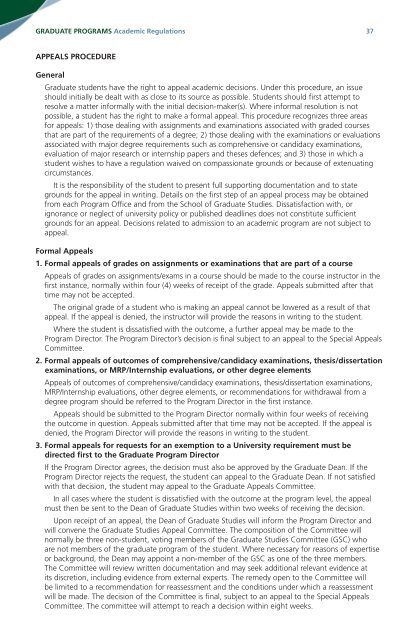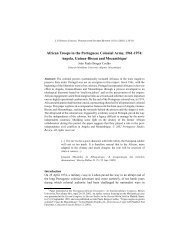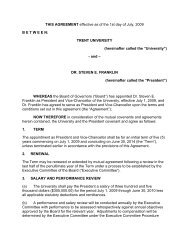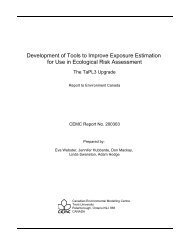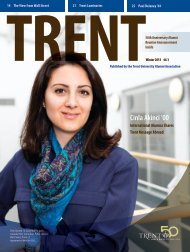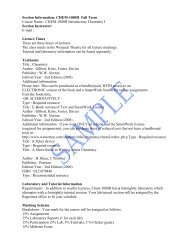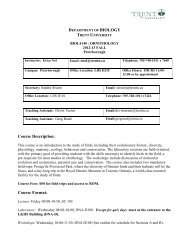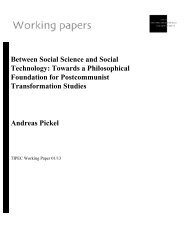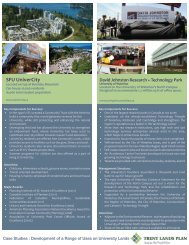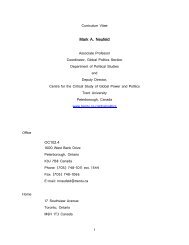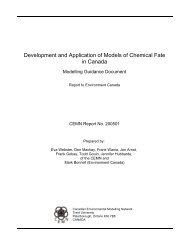Graduate academic calendar 2012 - 2013 - Trent University
Graduate academic calendar 2012 - 2013 - Trent University
Graduate academic calendar 2012 - 2013 - Trent University
You also want an ePaper? Increase the reach of your titles
YUMPU automatically turns print PDFs into web optimized ePapers that Google loves.
GRADUATE PROGRAMS Academic Regulations<br />
37<br />
APPEALS PROCEDURE<br />
General<br />
<strong>Graduate</strong> students have the right to appeal <strong>academic</strong> decisions. Under this procedure, an issue<br />
should initially be dealt with as close to its source as possible. Students should first attempt to<br />
resolve a matter informally with the initial decision-maker(s). Where informal resolution is not<br />
possible, a student has the right to make a formal appeal. This procedure recognizes three areas<br />
for appeals: 1) those dealing with assignments and examinations associated with graded courses<br />
that are part of the requirements of a degree; 2) those dealing with the examinations or evaluations<br />
associated with major degree requirements such as comprehensive or candidacy examinations,<br />
evaluation of major research or internship papers and theses defences; and 3) those in which a<br />
student wishes to have a regulation waived on compassionate grounds or because of extenuating<br />
circumstances.<br />
It is the responsibility of the student to present full supporting documentation and to state<br />
grounds for the appeal in writing. Details on the first step of an appeal process may be obtained<br />
from each Program Office and from the School of <strong>Graduate</strong> Studies. Dissatisfaction with, or<br />
ignorance or neglect of university policy or published deadlines does not constitute sufficient<br />
grounds for an appeal. Decisions related to admission to an <strong>academic</strong> program are not subject to<br />
appeal.<br />
Formal Appeals<br />
1. Formal appeals of grades on assignments or examinations that are part of a course<br />
Appeals of grades on assignments/exams in a course should be made to the course instructor in the<br />
first instance, normally within four (4) weeks of receipt of the grade. Appeals submitted after that<br />
time may not be accepted.<br />
The original grade of a student who is making an appeal cannot be lowered as a result of that<br />
appeal. If the appeal is denied, the instructor will provide the reasons in writing to the student.<br />
Where the student is dissatisfied with the outcome, a further appeal may be made to the<br />
Program Director. The Program Director’s decision is final subject to an appeal to the Special Appeals<br />
Committee.<br />
2. Formal appeals of outcomes of comprehensive/candidacy examinations, thesis/dissertation<br />
examinations, or MRP/Internship evaluations, or other degree elements<br />
Appeals of outcomes of comprehensive/candidacy examinations, thesis/dissertation examinations,<br />
MRP/Internship evaluations, other degree elements, or recommendations for withdrawal from a<br />
degree program should be referred to the Program Director in the first instance.<br />
Appeals should be submitted to the Program Director normally within four weeks of receiving<br />
the outcome in question. Appeals submitted after that time may not be accepted. If the appeal is<br />
denied, the Program Director will provide the reasons in writing to the student.<br />
3. Formal appeals for requests for an exemption to a <strong>University</strong> requirement must be<br />
directed first to the <strong>Graduate</strong> Program Director<br />
If the Program Director agrees, the decision must also be approved by the <strong>Graduate</strong> Dean. If the<br />
Program Director rejects the request, the student can appeal to the <strong>Graduate</strong> Dean. If not satisfied<br />
with that decision, the student may appeal to the <strong>Graduate</strong> Appeals Committee.<br />
In all cases where the student is dissatisfied with the outcome at the program level, the appeal<br />
must then be sent to the Dean of <strong>Graduate</strong> Studies within two weeks of receiving the decision.<br />
Upon receipt of an appeal, the Dean of <strong>Graduate</strong> Studies will inform the Program Director and<br />
will convene the <strong>Graduate</strong> Studies Appeal Committee. The composition of the Committee will<br />
normally be three non-student, voting members of the <strong>Graduate</strong> Studies Committee (GSC) who<br />
are not members of the graduate program of the student. Where necessary for reasons of expertise<br />
or background, the Dean may appoint a non-member of the GSC as one of the three members.<br />
The Committee will review written documentation and may seek additional relevant evidence at<br />
its discretion, including evidence from external experts. The remedy open to the Committee will<br />
be limited to a recommendation for reassessment and the conditions under which a reassessment<br />
will be made. The decision of the Committee is final, subject to an appeal to the Special Appeals<br />
Committee. The committee will attempt to reach a decision within eight weeks.


